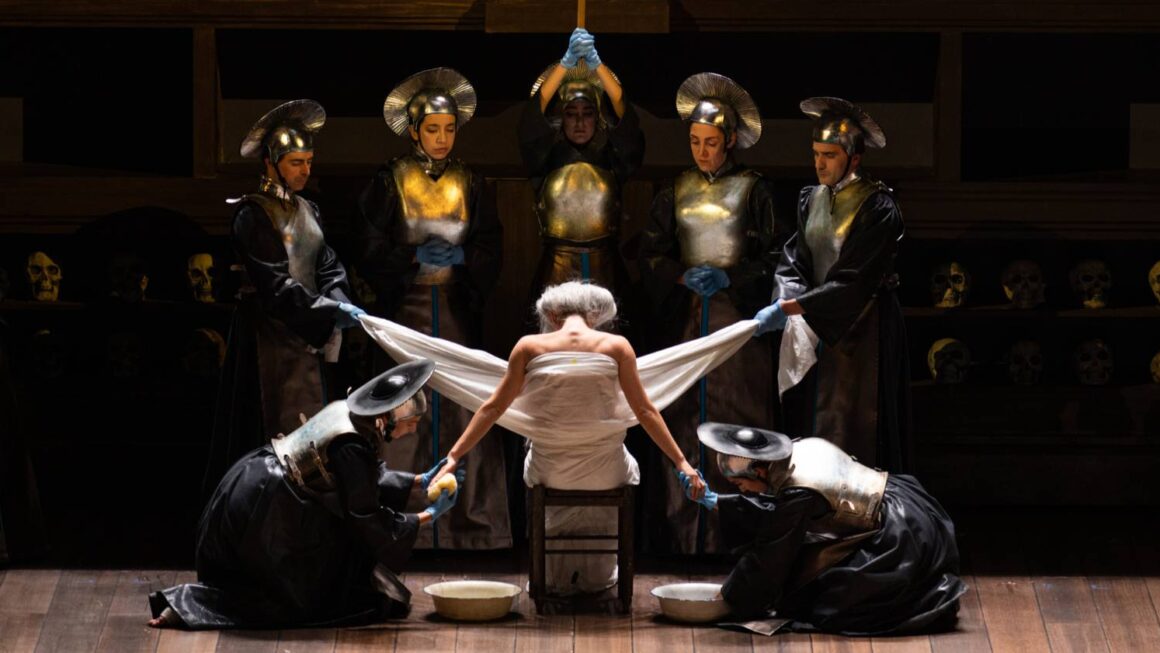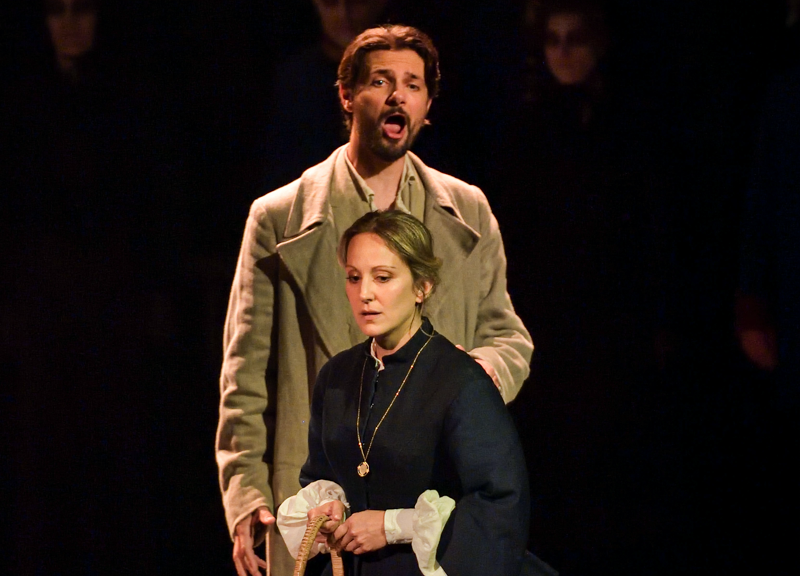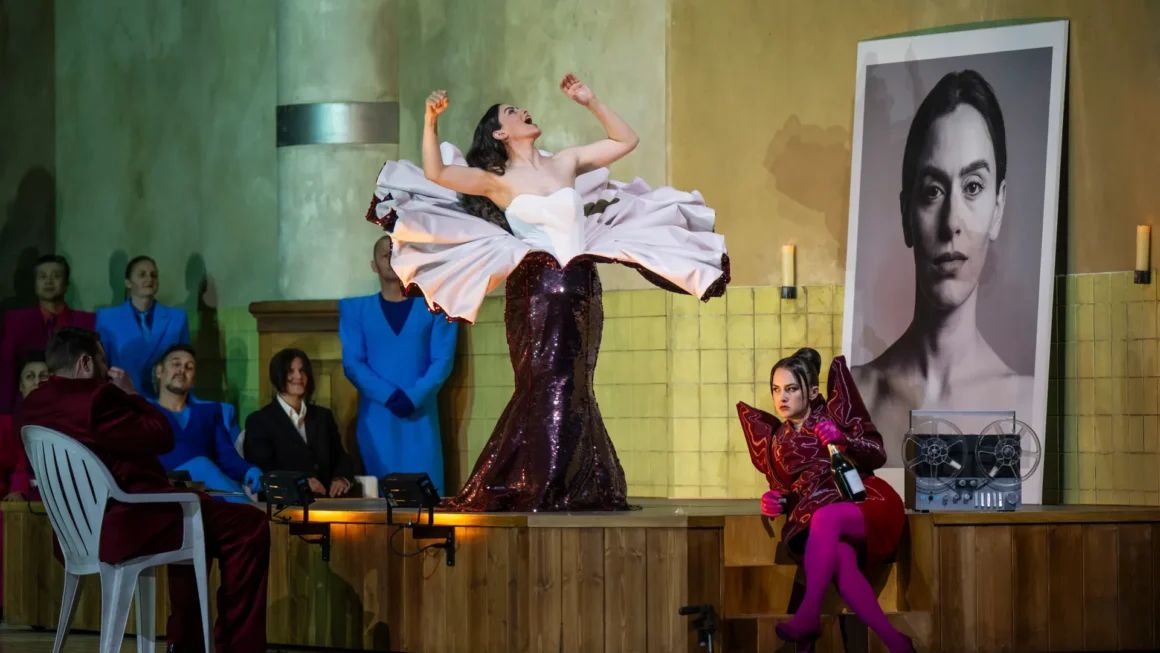A typical example of the opéra-comique style of the first half of the 19th century, The Black Domino (Le Domino Noir) is the ninth most performed opera at the Opéra Comique (where it was premièred, in 1837), but remains (regretfully) unknown to the general public (despite the 1.201 performances offered by the theater). Berlioz, in his review of The Black Domino, considered it to be Auber’s best work – during his lifetime, it was his most frequently played opera, and Auber was considered a worthy representative of the quintessential French spirit of his time – “light, brilliant, cheerful, often full of piquant projections and coquettish intentions”.
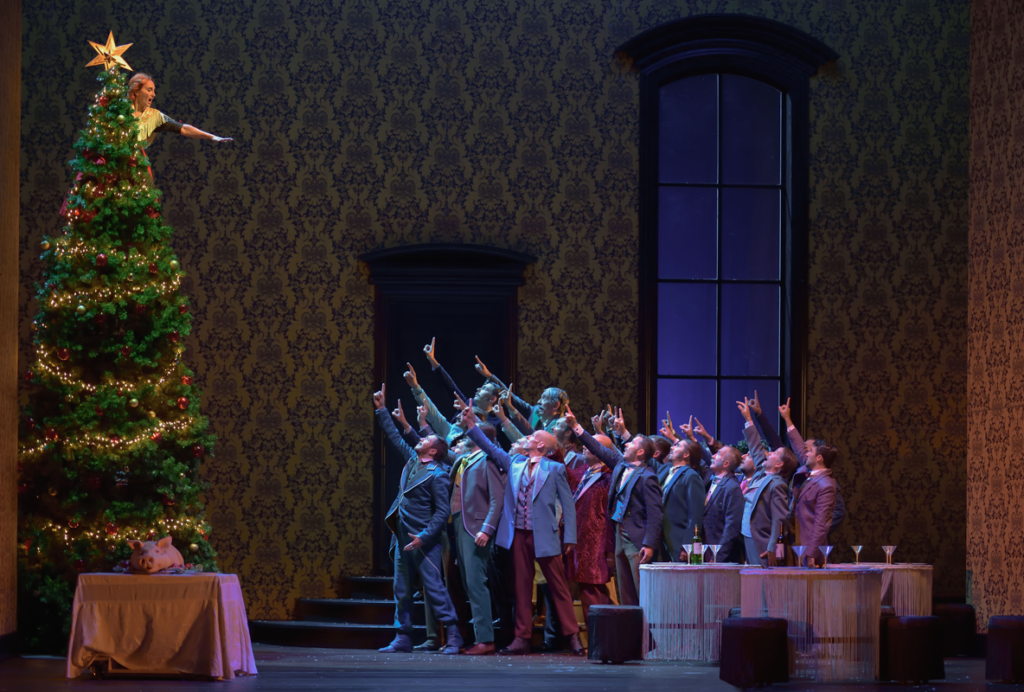
© Stefan Brion
This description can now be found both on stage (thanks to Valérie Lesort and Christian Hecq’s enchanting staging, first performed in 2018 and awarded the Grand Prix by the professional critics’ association) and in the pit (under the intrepid, twirling musical direction of Louis Langrée). Eugène Scribe’s libretto (even if it is not one of his masterpieces) blends so perfectly with Auber’s music (this was their 22nd collaboration out of no fewer than 37) that the combination of stage and orchestra is greatly facilitated. In the case of the current production, this complicity is made particularly evident by the naturalness of the performers’ playing and the fluidity with which the sound emanates from the pit. This intimacy between music and theatrical performance is recognised as soon as the curtain opens after the superb, rousing, dynamic overture (a fine preview of what’s in store for the 2.5-hour performance), which offers the audience the beauty and fantasy of a set that is a veritable pearl of imagination. The well-crafted structure of the opera (three acts that are perfectly distinct but follow a thread that is clear enough to understand “how” and “why” we move from one context to another) allows us to follow this love story – which serves as a pretext for a fairly refined satire – embodied by zany characters, where music and declamation are equally important.
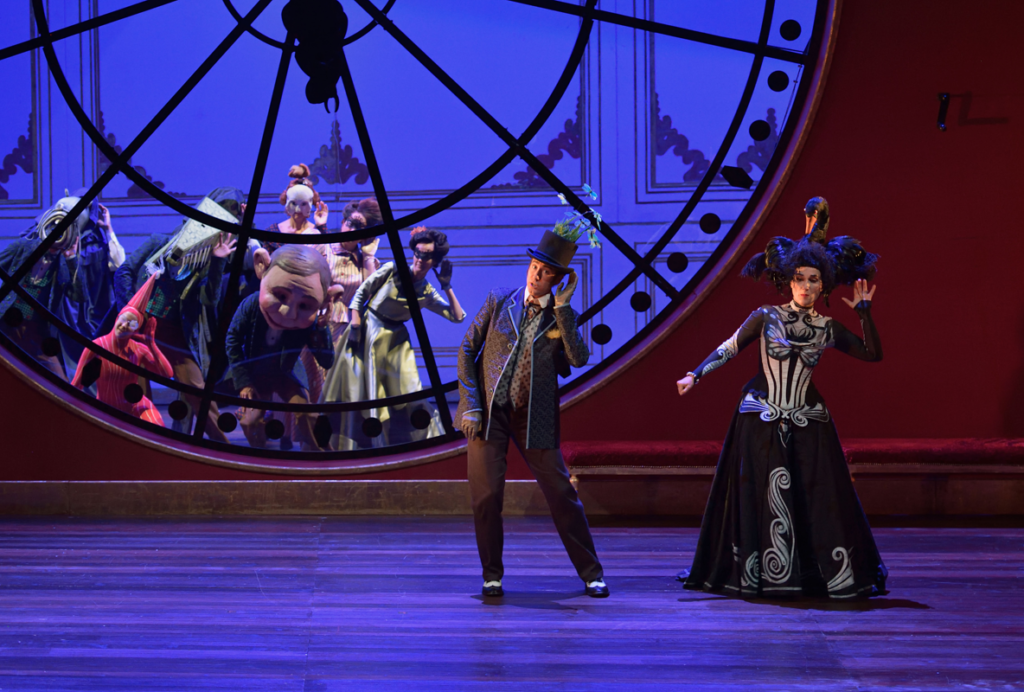
© Stefan Brion
“Midnight! Ou la Nouvelle Cendrillon” was the name originally intended for the score of The Black Domino. This is understandable, given the many similarities between the two works: in Spain at the time of the Restauración, Angèle de Olivarès, cousin of the Queen of Spain and a novice preparing to become an abbess, dresses up in a black domino (i.e. a masked ball costume consisting of a floating dress with a hood, according to Le Robert dictionary) to escape from the Annonciades convent and savour worldly pleasures one last time. Once at the ball, Angèle is courted by the cavalier Horace de Masserena, a young Spanish diplomat, who said he had already seen her. Eager (but not really…) to remain faithful to her vows, Angèle decides to leave the ball. But it’s after midnight and the convent doors are locked. Over the course of an extravagant night, Angèle hides, cross-dresses and finally, by a happy (royal) happenstance, changes her vocation.
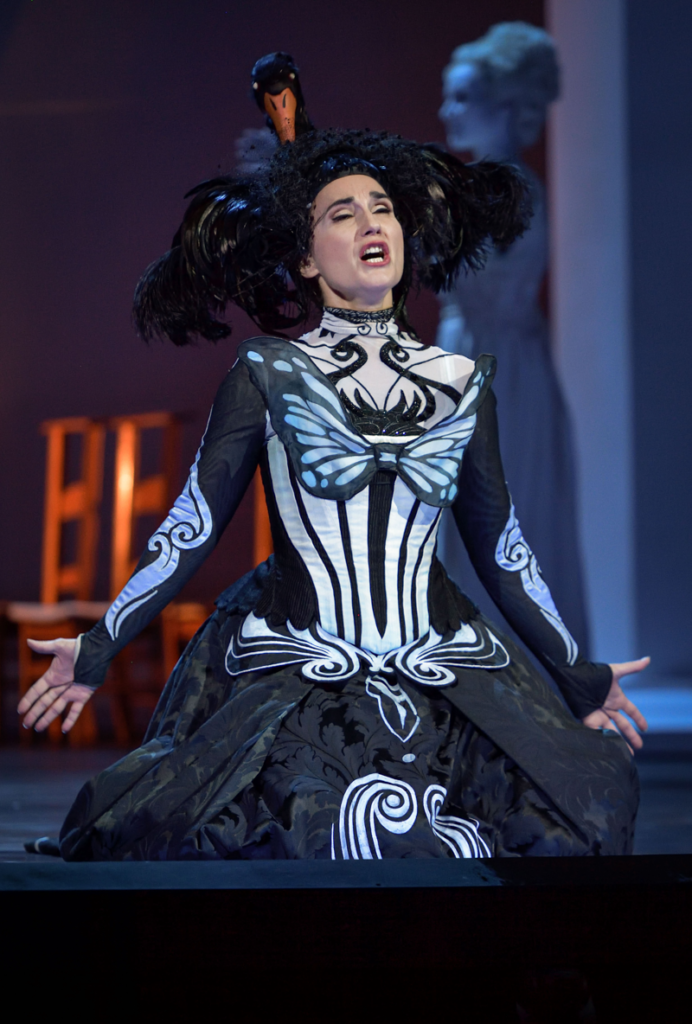
© Stefan Brion
Anne-Catherine Gillet marvellously embodies the role of Angèle, the perfect heir to the art of the role’s creator, Laure Cinti-Damoreau (Auber’s favourite performer, having taken part in the premières of Rossini’s four French operas). Her agility, grace, lightness, ability to embellish melodic lines and offer the audience moments of ineffable virtuosity, sprinkled par-ci, par-là… all combine to produce a performance that can be described as historic: who else could have so fully immersed herself in this character that you would have thought it had been written for her?
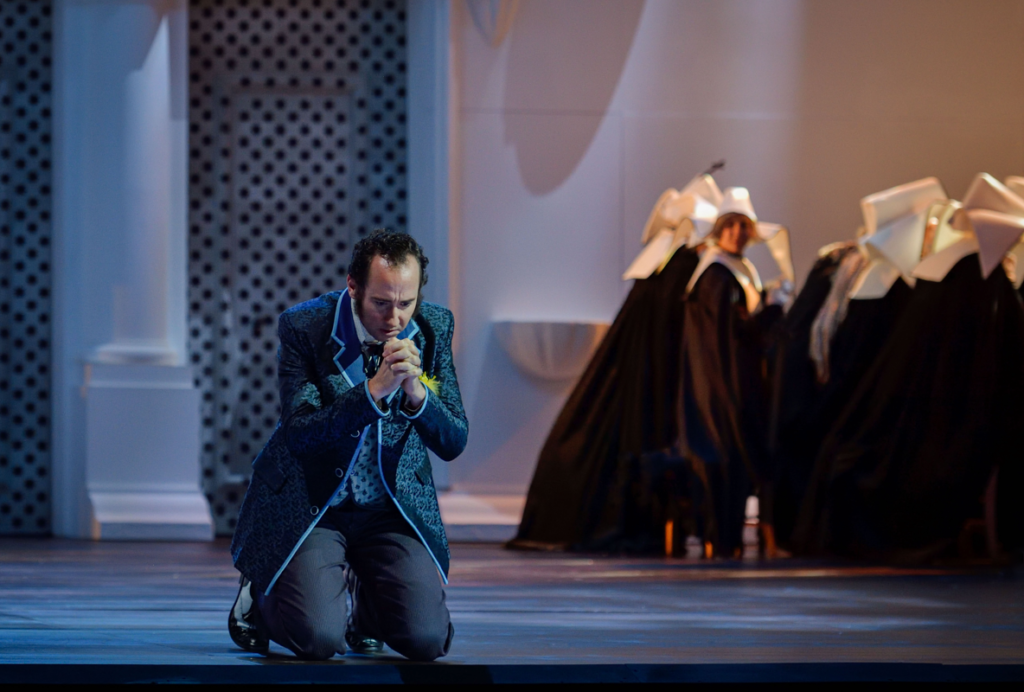
© Stefan Brion
To our delight Cyrille Dubois, as the young godelureau, pours out the love that drives Horace at every moment of the work with an amusing naivety (that makes you want to believe). His legato is unfailingly fluid and his diction cut like a piece of goldsmith’s work.
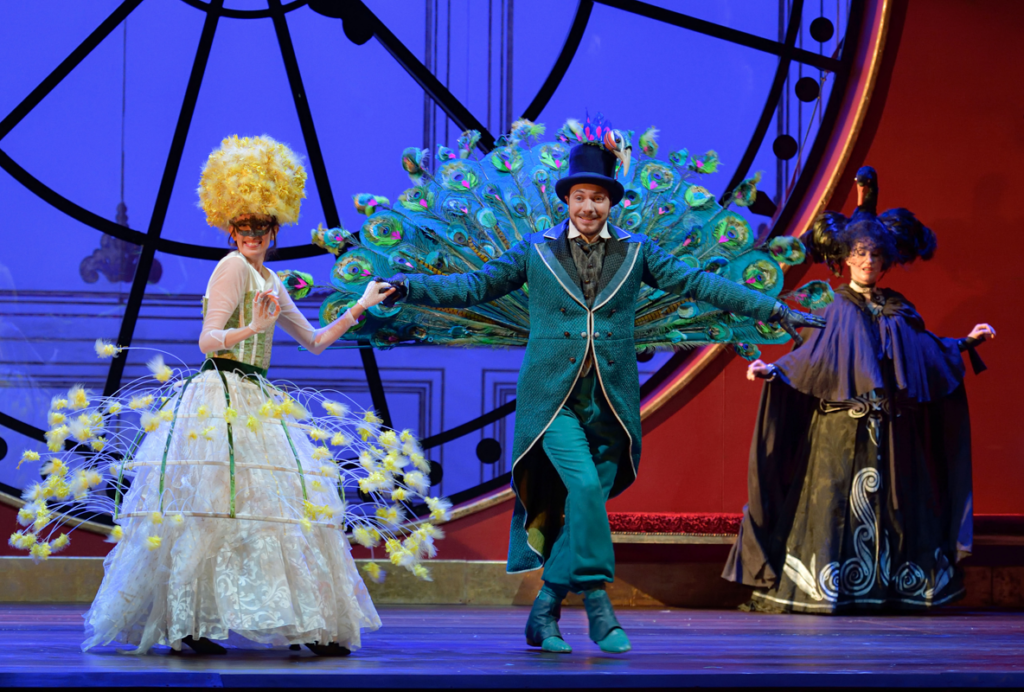
© Stefan Brion
In Victoire Bunel, Brigitte de San Lucar finds a top-quality performer, capable of displaying all the nuances her character requires, with the subtlety demanded by the text: from the sincere friend, ready to support Angèle in all circumstances, to the reckless novice who dares to confront Sylvia Bergé’s dreadful Sœur Ursule.
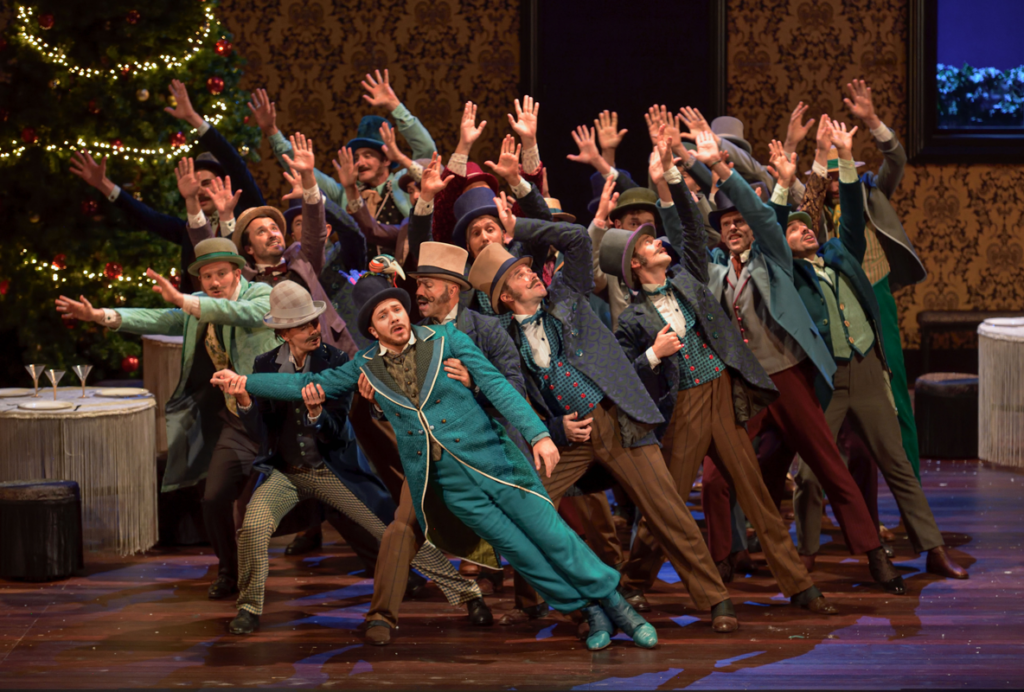
© Stefan Brion
Léo Vermot-Desroches’s Count Juliano is the first to introduce a certain carefree air into the story (which is to be found throughout the story), earning him immediate sympathy from the opening moments of Act 1. The beauty and projection of his voice, the meticulousness of his diction and the nobility of his bearing (peacock train included!)… a real luxury for the audience to delight in.
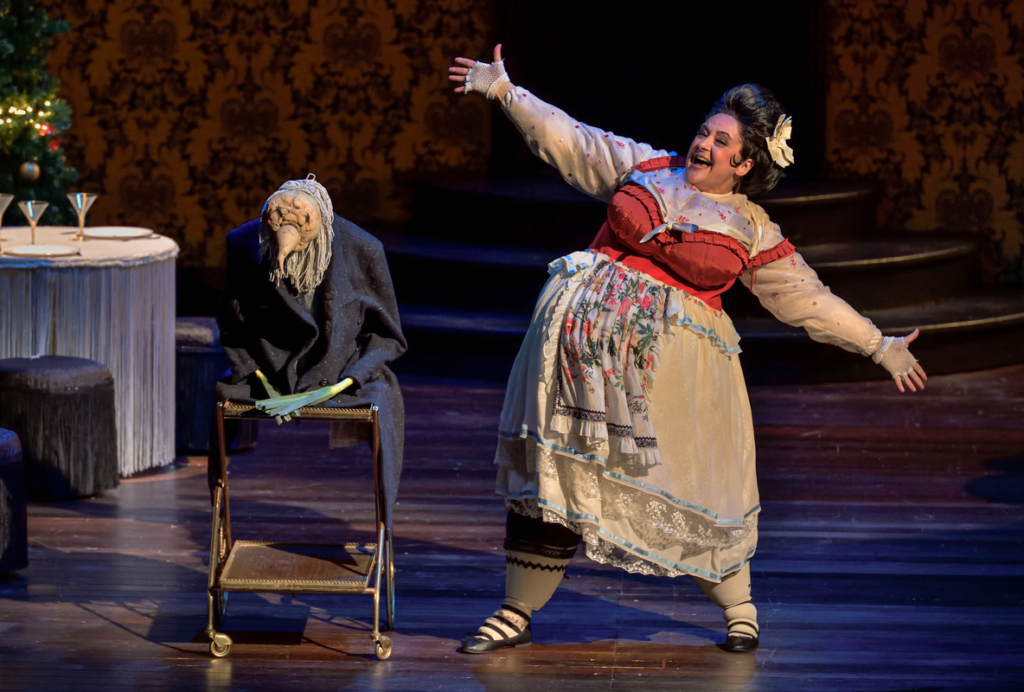
© Stefan Brion
Marie Lenormand and her Jacinthe provide the work’s most hilarious moments. The humour is fully successful because it is light-hearted, without being philistine, incarnated by a complete artist (as much a musician as an actress), rightly reminding us that Le Domino Noir is also a work in which théâtre and musique are on the same level. The beauty of the singing and phrasing is realised in a well-cast mezzo voice, perfectly suited to the role and to the Salle Favart.
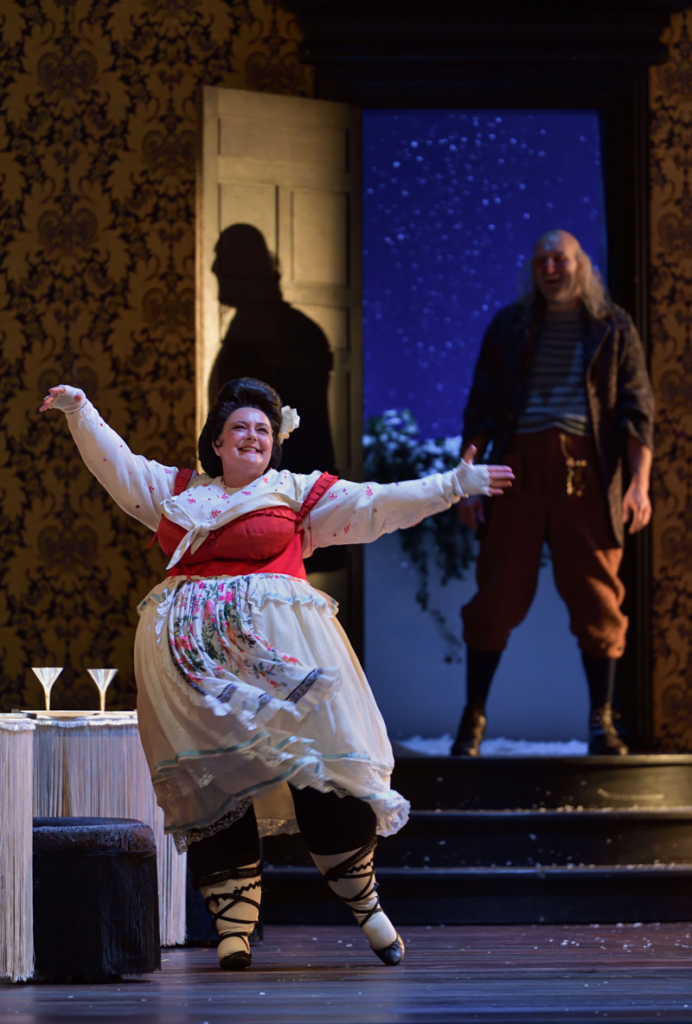
© Stefan Brion
Jean-Fernand Setti offers his imposing bass-baritone resources to Gil Perez, a concentrate of kindness and docility (against all odds). The singer amuses and, clearly, also enjoys himself: such a pleasing embodiment of the character can only be achieved by having fun on stage.
The performances of Sylvia Bergé as Sœur Ursule, Laurent Montel as Lord Elfort and Isabelle Jacques as La Tourière crown this magnificent show with the facetious sets with which the theatrical component of the libretto abounds. It is also thanks to them that, as Louis Langrée so aptly points out in his interview in the programme, “(…) the music embraces the life of the theatre”. The constant attention to detail required by such a subtle art is visible, and the result is palpable in every performance by these three great artists.
We left the theatre humming many of the arias performed during this extraordinary evening: Angèle’s romance Le trouble et la frayeur, her couplets Qui suis-je? Une fée, un bon ange, the aragonaise La belle Inès fait florès… We’re well aware that it’s no coincidence that the plot of The Black Domino is so irresistible: everything is designed to seduce the audience with the scent of pure vaudeville. Judging by the euphoric applause at the end of tonight’s performance, it’s clear that the enchantments of the past are still working just as well.
Casting: Anne-Catherine Gillet (Angèle de Olivarès); Cyrille Dubois (Horace de Massarena); Victoire Bunel (Brigitte de San Lucar); Léo Vermot-Desroches (Count Juliano); Marie Lenormand (Jacinthe); Jean-Fernand Setti (Gil Perez); Sylvia Bergé (Ursule); Laurent Montel (Lord Elfort); Isabelle Jacques (La Tourière); Les éléments’ choir.


